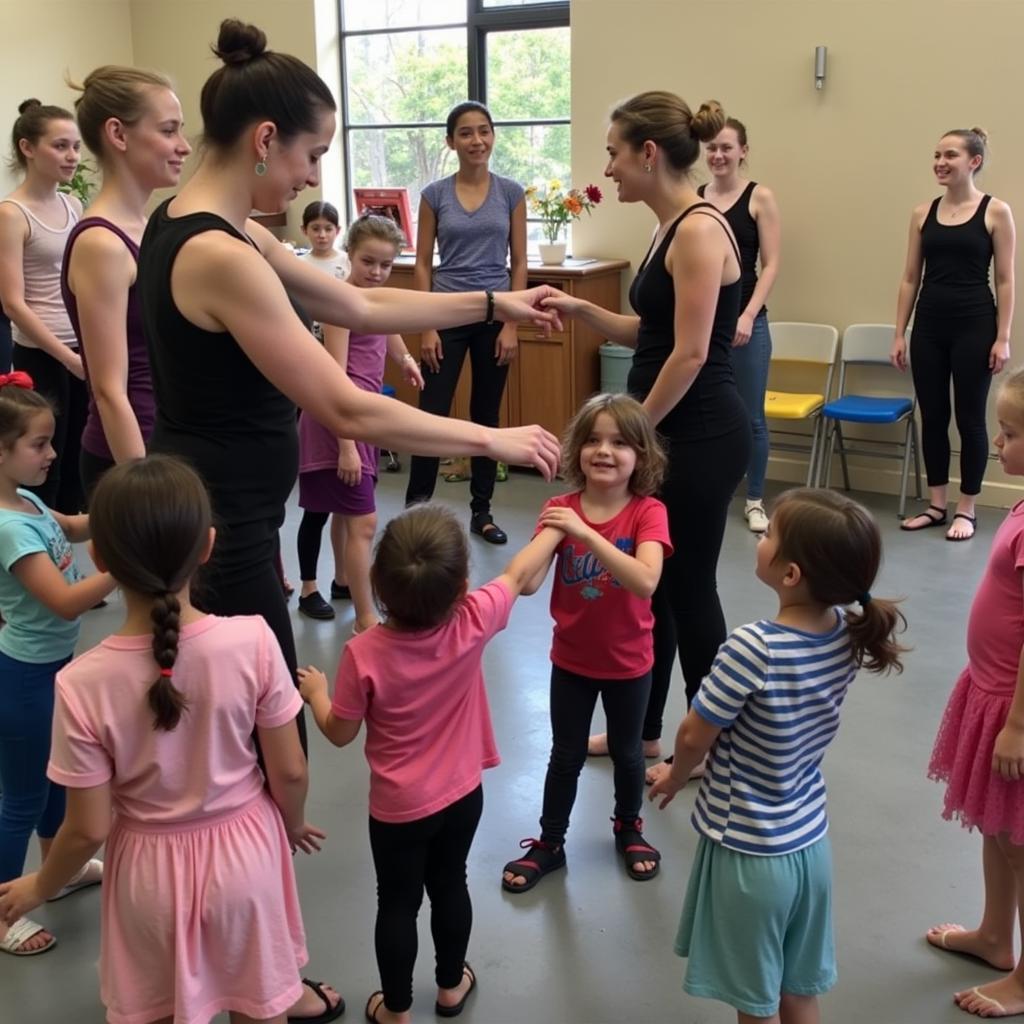Exploring the Vibrant World of African American Dance Companies
African American dance companies have played a pivotal role in shaping the landscape of American dance, contributing a rich tapestry of styles, stories, and traditions. From the electrifying rhythms of traditional African dance to the innovative movements of modern and contemporary forms, these companies offer a powerful expression of the African American experience. They serve as a testament to the resilience, creativity, and cultural richness of a community. Let’s delve deeper into this vibrant world.
A Historical Journey Through African American Dance
Tracing back the roots of African American dance reveals a fascinating journey through history. From the earliest days of enslavement, when dance served as a form of cultural preservation and resistance, to the birth of distinctly African American styles like tap and jazz, dance has always been integral to the community’s identity. The influence of African rhythms and movements is undeniable, forming the foundation upon which later innovations were built. During the Harlem Renaissance, African American dance flourished, with figures like Josephine Baker captivating audiences worldwide. This period marked a significant shift, bringing African American dance to the forefront of the artistic world. Check out resources on african american modern dance to delve further.
What were the early influences on African American dance? Traditional African dances, brought over during the transatlantic slave trade, played a crucial role, providing a connection to ancestral heritage and a means of expression amidst adversity.
The Evolution of Style: From Traditional to Contemporary
African American dance is not a monolithic entity but rather a dynamic and evolving art form. It encompasses a diverse range of styles, each with its own unique characteristics and historical context. Traditional African dances, often characterized by polyrhythmic drumming and communal participation, continue to be celebrated and passed down through generations. Tap, a percussive dance form born in the United States, emerged from a fusion of African and European influences. Jazz dance, with its improvisational nature and syncopated rhythms, reflects the vibrancy of African American musical traditions. Modern and contemporary African American dance companies push the boundaries of the art form, exploring themes of social justice, identity, and the human condition. You might be interested in african culture activities to broaden your understanding.
How has technology influenced African American dance? The rise of social media and online platforms has provided new avenues for sharing and promoting African American dance, reaching a global audience and connecting dancers across geographical boundaries.
The Impact of African American Dance Companies
African American dance companies have been instrumental in preserving and promoting this rich artistic heritage. They provide a platform for talented dancers to hone their craft, create new works, and share their stories with the world. These companies often serve as vital community hubs, offering educational programs and outreach initiatives that introduce young people to the power of dance. They act as cultural ambassadors, showcasing the beauty and diversity of African American dance to audiences both locally and internationally. Consider exploring african dance song for a richer experience.
Why are African American dance companies important? They play a crucial role in preserving cultural heritage, providing opportunities for artistic expression, and promoting social dialogue through the medium of dance.
Finding and Supporting African American Dance Companies
There are numerous ways to discover and support African American dance companies. Online resources, local arts organizations, and community centers can provide information about performances, classes, and other opportunities to engage with these vibrant artistic communities. Attending performances, making donations, and spreading awareness through social media are all valuable ways to support the work of these important cultural institutions. Explore leadership insights from african american business leaders for broader perspectives.
How can I find African American dance companies near me? Local arts councils, community centers, and online directories often list dance companies and performance schedules in your area.
 Members of an African American dance company engaging with the community through an outreach program.
Members of an African American dance company engaging with the community through an outreach program.
Conclusion: Celebrating a Legacy of Movement and Expression
African American dance companies represent a vital thread in the cultural tapestry of the United States. Their contributions, spanning centuries and encompassing a wide spectrum of styles, have enriched the world of dance and provided a powerful voice for the African American experience. By supporting and celebrating these companies, we ensure the continuation of a vibrant legacy of movement, expression, and cultural preservation. Learn more about relevant literature in african american children’s bible.
FAQ
- What are some famous African American dance companies? Alvin Ailey American Dance Theater and Dance Theatre of Harlem are two renowned examples.
- How does African American dance differ from other dance forms? It often incorporates unique rhythmic patterns, stylistic elements, and cultural narratives rooted in the African diaspora.
- Where can I learn more about the history of African American dance? Numerous books, documentaries, and online resources explore this rich history.
- How can I support local African American dance companies? Attending performances, making donations, and volunteering are all great ways to support.
- Are there opportunities for children to learn African American dance? Many dance companies offer classes and workshops for children of all ages.
- What is the significance of African American dance in broader society? It contributes to artistic expression, cultural preservation, and social dialogue.
- How does African American dance reflect the African American experience? It often explores themes of identity, resilience, and social justice.
For further assistance, please contact us: Phone: +255768904061, Email: [email protected], or visit us at Mbarali DC Mawindi, Kangaga, Tanzania. Our customer service team is available 24/7.
